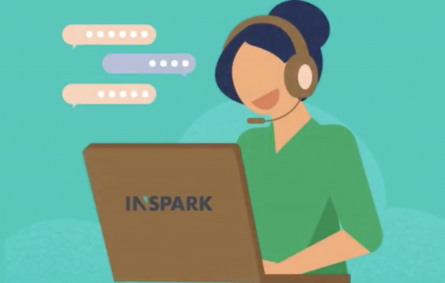
What effects will this new technology have for service teams? These are a couple first ideas.
Customer service organizations today are fighting an uphill battle. Service agents face record case volumes, and customers are frustrated by growing wait times. Often, to manage the case load, agents will simultaneously work on multiple customers’ issues at once while waiting for data from legacy systems to load.
After an agent closes a case, she may enter case notes, but these notes can get lost in the ether and other agents may end up problem-solving similar issues from scratch, not knowing their colleague had already solved it. With nearly half of customers citing poor service experiences as the main reason they switched brands last year, the pressure is on for companies to find a better way forward.
Recently, there has been a lot of buzz around ChatGPT, a generative artificial intelligence (AI) model developed by OpenAI. GPT and other generative AI models like Anthropic and Bard are built on pre-trained, large language models that help users create unique text, images, and other content from text-based prompts. Combined with Salesforce’s long standing expertise in AI, generative AI models will change the game for customer service, helping companies operate more efficiently, develop more empathetic responses to customer requests, and resolve cases faster.
We’ll share more about the future of generative AI at Salesforce, including EinsteinGPT, during our TrailblaxerDX event on March 7. Here is a glimpse into some of the ways generative AI could transform customer service.
What generative AI for service could look like?
We’ve already seen the impact of AI in service. Nearly seven years ago, Salesforce launched Einstein for Service to give agents AI-powered capabilities. These have included recommended next-best actions and responses to customer inquiries, as well as automating case summarization.
Generative AI is about to take service operations to the next level of efficiency and personalization.
With generative AI layered onto Einstein for Service and Customer 360, we’ll have the ability to automatically generate personalized responses for agents to quickly email or message to customers. We’ll be able to train the AI across all the case notes ever written by every agent at the company to automatically generate drafts of knowledge articles for human review, drastically cutting the time to create knowledge and making it easier to keep articles up to date. The enhanced relevance and quality of knowledge across the company will make self-service portals and chatbots more valuable, freeing human agents to spend more time deeply engaging on complex issues and building long-term customer relationships.
The current wave of generative models are very powerful, but in a small number of cases, they can generate biased and even harmful outputs, as well as made-up facts (called “hallucinations”). This is why keeping a human reviewer in the loop, whether it’s a service agent or knowledge expert, will be important for the foreseeable future. Given the extensive opportunities and challenges related to generative AI, Salesforce recently published the five guidelines for trusted generative AI development, and explained the potential for generative AI in enterprise tech and how to balance this transformative tech with the reality and risks.
Super-powered chatbots
Layering generative AI on top of Einstein capabilities will automate the creation of smarter, more personalized chatbot responses that can deeply understand, anticipate, and respond to customer issues. This will power better informed answers to nuanced customer queries, helping to increase first-time resolution rates. With generative AI tapping into customer resolution data to analyze conversation sentiment and patterns, service organizations will be able to drive continuous improvement, identify trends, and accelerate bot training and updates.
Auto-generate knowledge articles
Over time, we plan to use generative AI to draft knowledge articles not only based on case notes but also Slack conversations, messaging history, and data across Customer 360 to accelerate agent case resolution and shift even more support cases to self-service experiences. This will alleviate pressure on call centers and agents.
Fast-track case swarming
We’re already seeing many service teams work more effectively with case swarming, where agents bring in experts from across their organization to help solve complex cases or larger incidents. Now imagine how much more efficiently they could work if the lessons from previous case swarms could be shared and more broadly applied. We will use generative AI to identify similar past cases; identify who in the organization has the best, most relevant skills to address the issue; and recommend resolutions and customer communications to fast-track and even automate many aspects of the case swarm.
We are entering an exciting new era of AI which will completely reshape the field of customer service. Guided by Salesforce’s long history of ethical product development, organizations will be able to embrace the power of generative AI to supercharge productivity, accelerate case resolution, and deepen customer relationships with greater personalization and relevance.
Blog sourced from Salesforce.